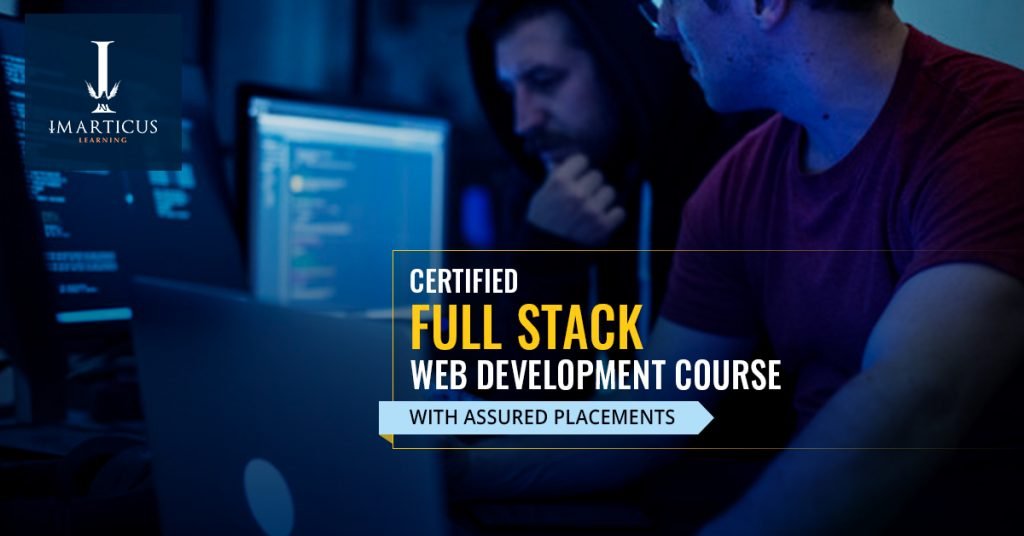Last updated on April 2nd, 2024 at 09:38 am
 A career in Full Stack development is different from any other tech job because here you are supposed to know everything. For example, you need to know how to create back-end libraries, client-facing interfaces, and many more. If you like programming then you can pursue a Full-Stack development certification course to land job opportunities in the same field.
A career in Full Stack development is different from any other tech job because here you are supposed to know everything. For example, you need to know how to create back-end libraries, client-facing interfaces, and many more. If you like programming then you can pursue a Full-Stack development certification course to land job opportunities in the same field.
Begin your career in Full Stack development
In this article, we will discuss how you can jumpstart your career and get Full Stack developer jobs.
First, learn the necessary skills
If you want to qualify for a job as a full-stack developer then you need to have a robust skill set and a strengthened foundation to back it up. More importantly, you need to find out how to tackle the pressure and manage the responsibilities assigned to you.
As per the research of HackerRank, a full-stack developer needs to know more programming languages than any other normal developer. A study conducted by HackerRank in 2020 reported that 45 per cent of full-stack developers had to master a new programming language in one year.
At the beginning of your Full Stack development career journey you need to learn some of these essential programming languages:
- SQL
- Python
- Java
- JavaScript
- Git
- HTML
- Bootstrap
- CSS
- jQuery
By learning the above-mentioned programming languages you will be able essentially to build up a proper foundation which in turn will help you land a Full Stack developer job.
Continue polishing your skills
Before you apply for a job as a full stack developer you need to continue practicing and further develop your programming skills. This is specifically important for those who are not pursuing any kind of regularized or formalized learning program or pattern. There are some effective ways through which you can regularly develop your programming skills, some of them are discussed below.
Raise your portfolio
If you are still in your learning phase and currently attending a Full-Stack development certification course then you will also require a portfolio to back your programming skills. Oftentimes a recruiter primarily looks at your portfolio to determine if you are eligible enough for the job.
One way you can demonstrate your programming skills is by designing a functional website that will include your resume, bio, any projects that you have contributed to, etc. This will create a positive impression on the recruiters. You can also create a profile on GitHub which is a cloud-based platform that allows worldwide developers to contribute to open-source projects.
Try working on volunteer projects
Although volunteering on projects may not seem like a great option for you if you are looking for a paid opportunity nevertheless, it will provide you with much-needed work experience, add up to your resume and assist in a better cause.
Work on freelance projects

A career in Full Stack development will require enough experience and if you don’t think you are ready to land a full-time position right now, you can try working on smaller projects or freelance projects. By working on freelance projects, you will not only increase your overall skill level but you can also boost your confidence as well as build a robust portfolio.
Keep reading other people’s code
As a junior developer or trainee, you don’t need to code and create every little thing from scratch. Generally speaking, a lot of times you will be using different codes created by other developers and that is why it is also important to select the appropriate programming language (which is very common among other Full Stack developers.)
While using other people’s code you will need to understand how good and effective it is for the industry. The most efficient way to comprehend the code is by reading them regularly. Reading other developers’ code will not only help you boost your understanding of the coding languages but will also assist you in writing better code. In the meantime, you will also get a grasp of the shortcuts and simple yet efficient tactics as a Full Stack developer.
Search for Full Stack developer jobs
Once you have raised your fundamental skills and gained enough experience as a newcomer through the Full-Stack development certification course you will be ready to apply for entry-level jobs at software development companies.
Nevertheless, before applying for an entry-level position and beginning a career in Full Stack development you will need to know what you will be dealing with daily. Normally, a full-stack developer is usually responsible for creating back-end and front-end structures.
They also need to collaborate with other developers to design, test, develop, refine and code different projects and applications. Full stack developers are tasked with managing and maintaining different types of UI frameworks, databases, and operating systems. Most importantly, full stack developers need to constantly learn while working on different projects and tackle the challenges encountered during the entire development process.

